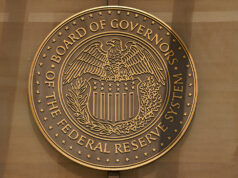Bill on Islamic banking framework filed in Senate
SENATOR Sherwin T. Gatchalian has filed a bill seeking to establish a regulatory framework for the development of Islamic banks in the Philippines.
Senate Bill No. 2105 filed on Nov. 21 gives the Bangko Sentral ng Pilipinas (BSP) regulatory powers and supervision over the Islamic banks operations. The agency is also mandated to issue implementing rules and regulations on Islamic banking, taking into consideration its “peculiar characteristics.”
It also empowers the BSP’s policy-setting Monetary Board to authorize the establishment of Islamic banks and to allow conventional banks to engage in Islamic banking arrangements through a designated Islamic banking unit within the bank. The Monetary Board may also regulate the number of participants in the Islamic banking system.
The Monetary Board may also prescribe and authorize foreign Islamic banks to operate in the Philippines under any modes of entry as provided under Republic Act No. 7271 or the law liberalizing the banking industry.
The bill likewise mandates Islamic banks to constitute a Shari’ah Advisory Council, which will be composed of experts in Shari’ah, banking, finance, law and other related disciplines. The council is tasked to provide advice and to review applications of Shari’ah principles. The council is not allowed to be directly involved in Islamic banks operations.
Under the proposed measure, Islamic banks will be allowed to perform banking services, such as accepting or creating current, savings accounts and investment accounts, accepting foreign currency deposits, as well as acting as correspondent banks and institutions, among others.
In a statement on Thursday, Mr. Gatchalian said the proposed measure provides opportunities for the country’s Muslim population, especially entrepreneurs to have access to banking and financial services that are compliant with the Shari’ah principles or Islamic laws.
He added that it will also help the government in developing the Bangsamoro region.
“It will likewise enable the country to tap into the growing pool of Islamic investors across Middle East and Southeast Asia,” Mr. Gatchalian said.
“With this bill, we are recognizing the vital role of Islamic banking and finance in creating opportunities for greater financial inclusion, especially for the underserved Muslim population,” he added.
The Al-Alamah Islamic Investment Bank of the Philippines, created through Republic Act No. 6848, is the only bank in the Philippines authorized to offer Islamic banking services. It has eight branches in Mindanao.
The House of Representatives approved on second reading last month House Bill 8281 or An Act Providing for the Regulation and Organization of Islamic Banks. — Camille A. Aguinaldo



